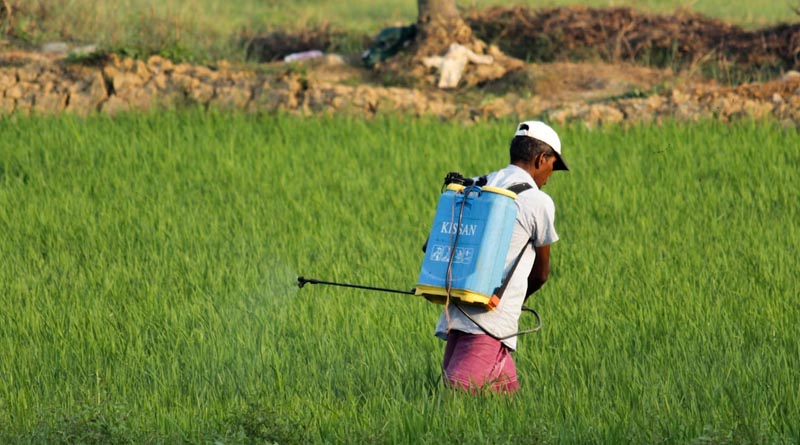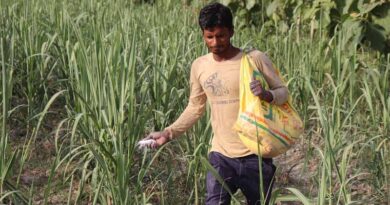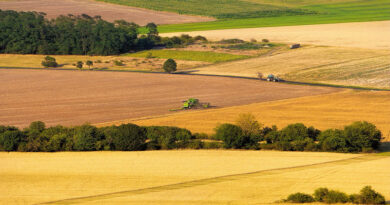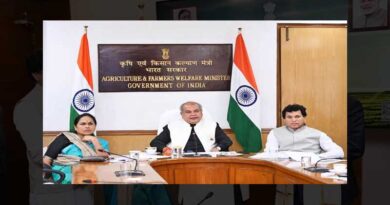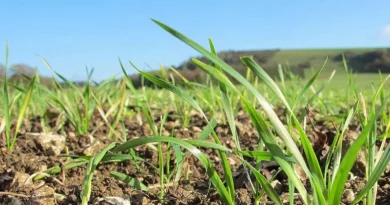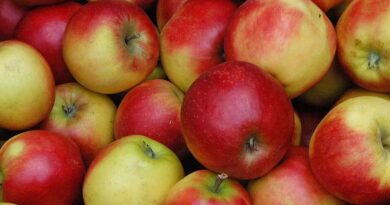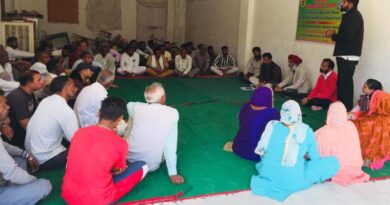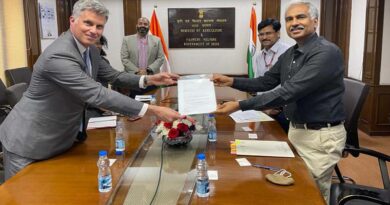Ramping up technology adoption and increasing productivity should be the focus of government for Budget 2024
27 January 2024, New Delhi: The budgetary allotment to the Ministry of Agriculture and Farmers Welfare has been steadily rising over the past few years, with a total of Rs. 1.25 lakh crore in FY23. In addition, the ministry is conducting a saturation push through the “Viksit Bharat Sankalp Yatra” to reach as many farmers as possible nationwide in order to maximize the use of the funds allotted under various schemes.
With a continual increase in the budget over the previous five years, the Agriculture Ministry has fallen behind in utilizing the additional allocation. The Agriculture Ministry’s “Accounts at a Glance 2022-23” report states that the Department of Agriculture and Farmers’ Welfare forfeited more than Rs. 20,000 crore of its yearly budget.
According to sources, the government intends to enhance allocation to direct benefit transfer schemes (DBT) in FY2024, scale up machinery subsidy schemes, and increase purchase on minimum support prices, particularly for pulses.

Speaking on budget expectations, Ankur Aggarwal, Managing Director, Crystal Crop Protection, said, “Agriculture is the backbone of our country and it continues to be a major driver of India’s economic growth. Players across the agritech and agrochemical spectrum are boosting this industry by prioritizing technological advancements. We at Crystal Crop are offering our services by expanding the scope of crop protection in the pesticide, insecticide, herbicide, Biological, Seed and Agri equipment segments through cutting-edge R&D practices. As we approach the 2024 budget, we are anticipating a positive impact on the agriculture industry. We expect that there will be valuable allocation of the budget towards ramping up technology adoption, increasing productivity and enhancing storage infrastructure in this sector, and in the process deliver significant benefits for farmers, agriculture machine owners and OEMs alike.”
Climate change has been evident in agriculture for the last two years as the temperatures and precipitation, the key drivers of productivity have been unpredictable. The Indian Council of Agricultural Research (ICAR), an autonomous organization under the Department of Agricultural Research and Education (DARE), Ministry of Agriculture and Farmers Welfare, Government of India has been pushing for climate-resilient varieties to be sown. In the current Rabi 2023 season, about 60% of wheat sowing has been completed with climate-resilient varieties. These varieties tolerate sudden changes in temperature and also high temperatures towards crop maturity.

Speaking on climate change and expectations from budget 2024, Shailendra Singh Rao, Founder & MD, Creduce, working on climate change mitigation technologies said, “This budget would be a vote on account, hence there wouldn’t be too much of an expectation from the present government. But considering the fact that the election results seem to be predetermined towards a certain party we hope that the present budget takes the good work forward. We hope the Climate Change budget is taken forward with more emphasis on nature-based solutions. More job creation opportunities are shared in this process. And most importantly technological advancements are encouraged in this sector which would not only help Bharat but also the world.”
Also Read: Exclusive: Why is Mancozeb important for UPL?
(For Latest Agriculture News & Updates, follow Krishak Jagat on Google News)

